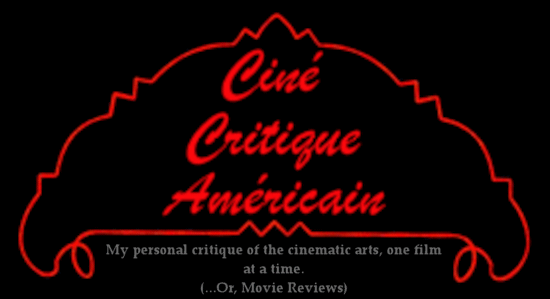 If not for the book of the same name, "Where the Wild Things Are" could have simply been called "Childhood," for this is the best, symbolic representation of childhood and the perceptions of a child's mind that I have ever seen on the movie screen. On the surface, the plot is almost as simple as the 10 sentence book that it's based on, but hidden therein are layers upon layers of meaning. The urge to psychoanalyze this movie is overwhelming, but, for fear of giving away to much or tinting your own analysis and enjoyment, I'll save that for later.
If not for the book of the same name, "Where the Wild Things Are" could have simply been called "Childhood," for this is the best, symbolic representation of childhood and the perceptions of a child's mind that I have ever seen on the movie screen. On the surface, the plot is almost as simple as the 10 sentence book that it's based on, but hidden therein are layers upon layers of meaning. The urge to psychoanalyze this movie is overwhelming, but, for fear of giving away to much or tinting your own analysis and enjoyment, I'll save that for later.Writer and director Spike Jonze and writer Dave Eggers masterfully recreate the mind of a child as it tries to comprehend the adult world that surrounds it. Max, played perfectly by Max Records, is a maybe eight to ten year old kid who's trying to deal with an absent father and his mother dating. Max flees home after, in his anger, he hurts his mother and, through Max's imagination, we live out his feelings and fears as childhood anxieties and the adults in his life are replaced with wild things.
James Gandolfini plays Carol, the wild thing that primarily embodies both Max's father and his fear of loss (but I'm supposed to be saving the psychoanalysis for later.) Though most of the dialogue sounds like it was written by an 8 year old kid, and seeing as it is supposed to be the embodiment of the imagination of such a child, it should sound exactly like that, Gandolfini, as well as the other actors voicing wild things, does a great job of sounding like an adult, as heard by a child.
Even though this movie has a cast of big, Muppet like, monster characters, it is not really intended for toddlers. I saw many bored and restless three to five year old kids in the theater. Sadly, this movie is simply above their level of comprehension. Seven to twelve year children will likely identify with this movie very well, and, when they grow up and see it again, they will likely gain a greater insight to their own childhoods and a greater understanding of their own children (one can hope.) Kids older than that can still enjoy this movie, though older teens may be a bit bored. Parents are likely to get the most out of "Where the Wild Things Are," as they see the lives of their own children mirrored in Max's imaginary world (and they, hopefully, develop a greater empathy toward their own children and the world their children live in.) And, apparently, twenty something can even enjoy this film as well. I was witness to a group of college aged kids reverting back to childhood, howling, as they left the theater. (No, they hadn't been drinking.)
 Although I, personally, am a sucker for psychoanalytical symbolism, I can safely recommend "Where the Wild Things Are" to anyone who can find and savor that bittersweet joy that can be had by seeing the world through the eyes of a child.
Although I, personally, am a sucker for psychoanalytical symbolism, I can safely recommend "Where the Wild Things Are" to anyone who can find and savor that bittersweet joy that can be had by seeing the world through the eyes of a child. 











it's interesting how polarizing this movie is, some people say WTWTA is the best movie of the year and other say it's the worst; i myself tend to lean toward the latter opinion just because it didn't really have a plot
ReplyDelete"Where the Wild Things Are" certainly takes liberties with traditional story structure, the entire third act is very short and consists of Max’s arrival home and the restoration of his confidence in his mother's love, but I wouldn't say it lacked a plot. The plot was simply not the usual, action based story line. Rather, it's a look at everyone in Max's life, as perceived by Max, and personified by the creatures he imagines. We see his mother and father fighting and their breakup and his father’s best friend becoming concerned over what looks like a drinking problem. We see his mother’s friends, his sister, and even Max himself, as the little goat that no one listens to and his need to be loved absolutely, to be the center of his world, in his being King. The plot is subtle but has many layers of complexity and will likely be the subject of many college psychology and sociology term papers for many years to come.
ReplyDelete